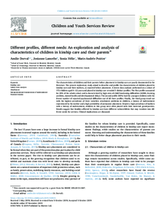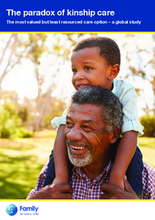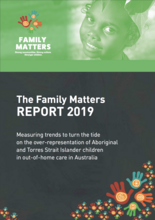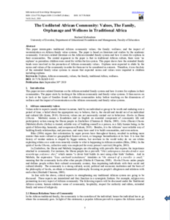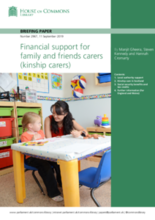Displaying 151 - 160 of 608
The present exploratory study aimed to describe and profile the characteristics of children placed in kinship care and their mothers, as reported before placement.
The present exploratory study aimed to describe and profile the characteristics of children placed in kinship care and their mothers, as reported before placement.
This article explores the extent of previous child welfare involvement and its association with well-being among children in informal kinship care.
This study explored the lived experiences of 23 kin caregivers raising children left behind in rural Northeast China while their migrant parents worked and lived in cities.
This report from Family for Every Child examines the growing use of kinship care, including its value and support needs for safe and effective use. The report argues that there is an urgent need to increase support to children living with relatives or friends of their family, with key recommendations made for national governments, donors and UN agencies.
The Family Matters report sets out what governments are doing to turn the tide on over-representation of Aboriginal and Torres Strait Islander children in out-of-home care in Australia and the outcomes for children and their families.
This paper reviews related literature on the African extended family system and how it caters for orphans in their communities.
In this video, Children in Families ABLE project practitioners discuss their key learning with respect to supporting caregivers to care for children, including the importance of managing stress and expectations, developing trusting relationships and taking a whole family approach to support.
In this video, Children in Families ABLE project practitioners speak to their experience and learning around recruiting foster families to care for children with disabilities, including the types of families to target and how to use role-modeling to address issues of stigma in the community.
This House of Commons Library briefing paper considers what help is available for grandparents and other family and friends carers (also known as kinship carers) looking after children where their parents are not in a position to do so.

